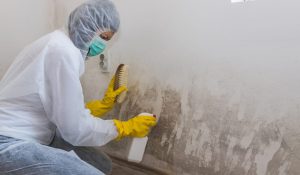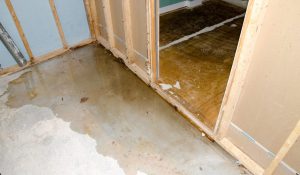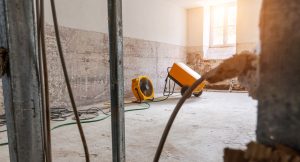
Selling a home is a complex process. It involves many steps, from staging to inspections. One crucial aspect often overlooked is mould remediation. Mould can be a silent deal-breaker. It affects not only the property’s value but also its appeal to potential buyers.
In this guide, we delve into the world of mould remediation. We explore its importance in the real estate market, especially for homeowners preparing to sell. We’ll provide actionable advice on identifying and addressing mould issues. We’ll also discuss how to work with mould remediation specialists. Our goal is to help you navigate this often overlooked aspect of home selling. We aim to assist you in presenting a healthy, mould-free property to the market.
Understanding Mould and Its Impact on Real Estate
Mould is a common issue in homes. It’s a type of fungus that thrives in damp environments. It can grow on various surfaces, from walls to furniture. Mould is more than just an aesthetic problem. It poses significant health risks and can impact the structural integrity of a property.
Here are some key points to understand about mould:
- It thrives in damp, humid conditions.
- It can grow on a variety of materials, including wood, drywall, and fabric.
- It can cause structural damage to a property over time.
- It can lead to health issues, especially for individuals with allergies or respiratory conditions.
What is Mould?
Mould is a type of fungus. It reproduces through tiny spores that float in the air. These spores can land on damp surfaces and start to grow. Mould can be various colours, including black, white, orange, green, or purple.
Health Risks of Mould in Homes
Exposure to mould can lead to health problems. These can range from minor to severe. Common symptoms include sneezing, runny nose, red eyes, and skin rash.
People with allergies or asthma may experience more severe reactions. These can include shortness of breath and asthma attacks. In rare cases, mould can lead to serious lung infections. It’s crucial to address mould issues promptly to protect the health of the home’s occupants.
Mould’s Effect on Property Value and Buyer Perception
Mould can significantly impact a property’s value. It’s often seen as a sign of neglect or poor maintenance. Potential buyers may be deterred by the presence of mould. They may worry about the costs of remediation and potential health risks.
Even if the mould is removed, the history of mould can affect a buyer’s perception. It’s essential to address mould issues before listing a property for sale. A clean, mould-free home is more appealing to buyers and can command a higher price.
Legal and Disclosure Considerations
When selling a home, it’s crucial to understand the legal implications of mould. In many areas, sellers are required to disclose known mould issues. Failure to disclose can lead to legal disputes and financial penalties. It’s essential to consult with a real estate attorney to understand your obligations.
Selling a Home with Known Mould Issues
Selling a home with known mould issues can be challenging. Buyers may demand a lower price or ask for remediation before closing. In some cases, mould issues can even lead to a sale falling through. It’s often in the seller’s best interest to address mould issues before listing the property.
The Importance of Transparency with Potential Buyers
Transparency is key when dealing with mould issues. Honesty about past or present mould problems can build trust with potential buyers. It’s important to provide documentation of any mould remediation efforts. This can reassure buyers that the issue has been addressed professionally and thoroughly.
Identifying and Addressing Mould Before Selling
Before listing your home, it’s crucial to identify and address any mould issues. Mould can often be detected through visual inspection or a musty smell. However, some mould may be hidden behind walls or under floors. In such cases, a professional mould inspection may be necessary.
How to Identify Mould in Your Home
Identifying mould in your home can be a straightforward process. Look for visible signs of mould, such as black, white, or green spots on surfaces. Mould often grows in damp areas, like bathrooms, kitchens, and basements. A musty smell can also indicate the presence of mould.
However, not all mould is visible or produces a noticeable smell.
- Check for water damage or leaks, as these can often lead to mould growth.
- Pay attention to any allergic reactions or respiratory issues, which could be caused by mould.
- Consider hiring a professional for a thorough mould inspection.
When to Call a Mould Remediation Specialist
If you find mould in your home, it’s important to call a mould remediation specialist. While small amounts of mould can often be cleaned by homeowners, larger infestations require professional help. A mould remediation specialist can safely remove the mould and prevent it from returning. They can also identify and address the source of the moisture causing the mould.
The Mould Remediation Process
The mould remediation process involves several steps. First, the mould remediation specialist will assess the extent of the mould problem. Next, they will contain the mould to prevent it from spreading during removal. The specialist will then remove the mould and clean the affected areas.
Finally, they will dry the area thoroughly to prevent future mould growth.
Choosing the Right Mould Remediation Service
Choosing the right mould remediation service is crucial. You want a service that is experienced, reliable, and thorough. The service should also provide excellent customer service and clear communication. Remember, the goal is not just to remove the mould, but to prevent it from returning.
Finding a Mould Remediation Specialist Near Me
Start your search for a mould remediation specialist by looking online. Search for “mould remediation near me” or “mould remediation Sydney” if you’re in that area. Read reviews and testimonials to get a sense of the company’s reputation. Don’t hesitate to ask for references from past clients.
Questions to Ask Before Hiring a Mould Remediation Service
Before hiring a mould remediation service, ask some key questions. Find out about their experience and qualifications. Ask about their remediation process and what measures they take to prevent future mould growth. Also, inquire about the cost and whether they offer any guarantees or warranties.
Certifications and Standards for Mould Remediation Professionals
Mould remediation professionals and mould removal specialists should have relevant certifications. These certifications demonstrate that they have the necessary training and expertise. Look for professionals who follow the standards set by industry organisations. This ensures they use safe and effective mould remediation methods.
Costs and Considerations for Mould Remediation
Mould remediation can be a significant investment. However, it’s important to remember that it’s an investment in your home’s value and health. The cost can vary depending on the extent of the mould problem and the size of the area to be treated when using mould removal specialists.
It’s also worth considering the potential cost of not addressing a mould problem, which could lead to more extensive damage and lower property value.
Understanding the Costs of Mould Remediation
The cost of mould remediation can vary widely. It depends on factors such as the size of the area affected, the type of mould, and the method of remediation used. Some companies may offer a flat rate, while others may charge by the square foot. Always ask for a detailed quote before hiring a mould remediation service.
Is Mould Remediation Covered by Insurance?
Whether mould remediation or mould removal services are covered by insurance can depend on several factors. Some insurance policies may cover mould remediation if the mould is caused by a “covered peril,” such as a burst pipe. However, if the mould is due to neglect or failure to maintain the property, it may not be covered. Always check with your insurance company to understand your coverage.
Preparing Your Home for Sale After Mould Remediation
Once mould removal services are complete, it’s time to prepare your home for sale. This involves more than just a deep clean and staging. You’ll need to ensure that the mould issue has been fully resolved and won’t return. It’s also important to document the remediation process for potential buyers.
Post-Remediation Verification and Documentation
After mould remediation, it’s crucial to verify that the mould has been completely removed. This can be done through post-remediation testing by a third party. Documentation of the remediation process, including before and after photos and test results, can be valuable. This documentation can provide reassurance to potential buyers that the mould issue has been addressed.
Marketing Your Home Post-Mould Remediation
Marketing a home after mould remediation requires transparency. It’s important to disclose the past mould issue and the steps taken to address it. This can actually be a selling point, showing that the home has been well cared for. Highlight the professional mould remediation in your home’s listing to attract health-conscious buyers.
The Role of Mould Remediation in Home Staging
Mould remediation plays a key role in home staging. A clean, mould-free home is more appealing to buyers. It allows them to focus on the home’s features, rather than potential health risks. Remember, a well-staged, mould-free home can lead to quicker sales and higher offers.
Conclusion: The Value of Mould Remediation in Real Estate Transactions
In conclusion, mould remediation is a crucial step in preparing a home for sale. It not only ensures the health and safety of future occupants but also enhances the property’s appeal. By addressing mould issues promptly and professionally, homeowners can protect their investment and potentially increase their home’s value. In the competitive real estate market, a mould-free home can be a significant selling point, setting your property apart from others.



